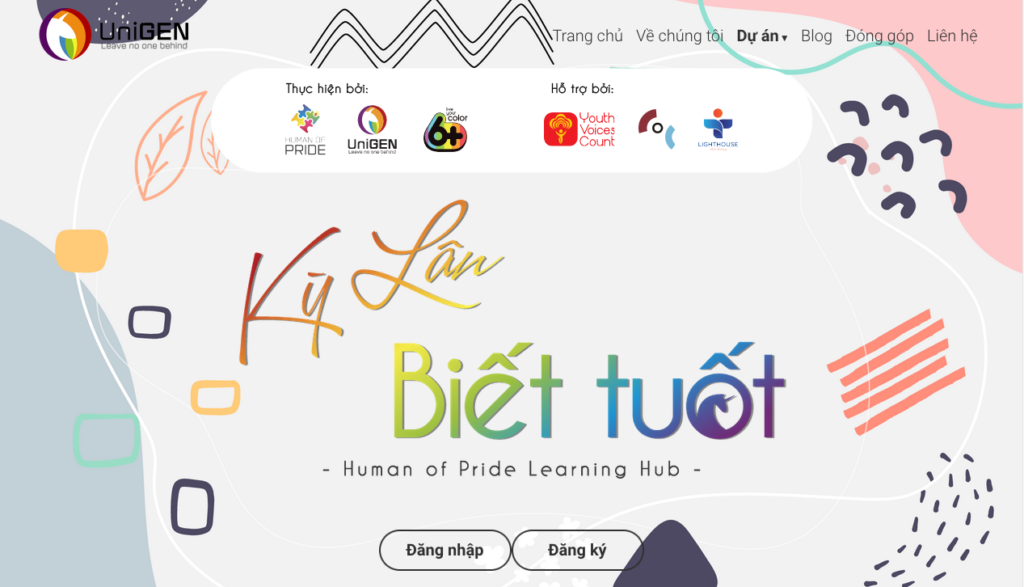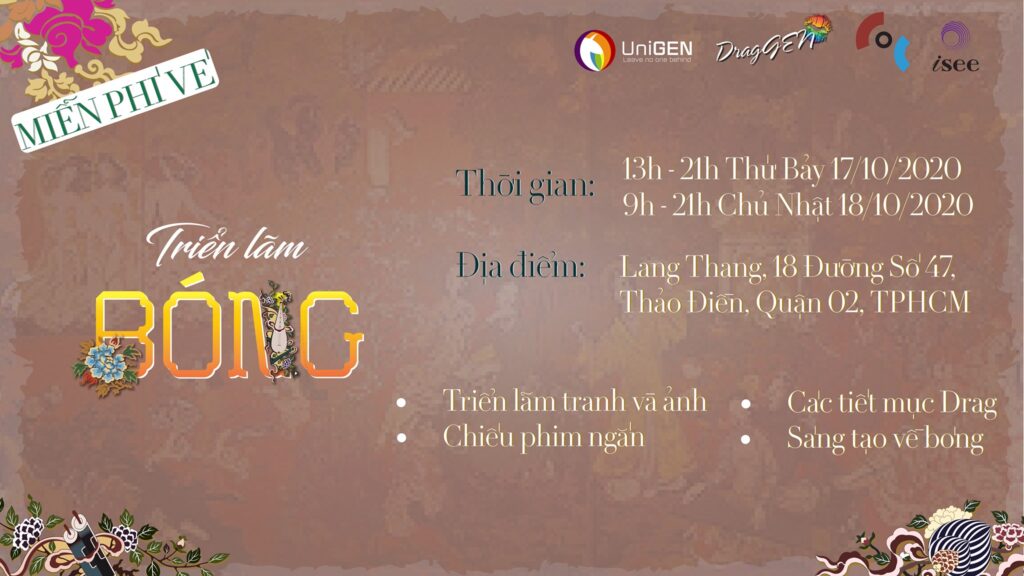Allies of the LGBTQ+ movement. Here to support, not here for the spotlight. - Linh Nguyen from Viet Nam
By Tharindi Devasurendra – Thursday, July 1, 2021

Linh Nguyen (also known as Mõc) is a straight, cisgender woman and an LGBTQ+ ally and activist from Viet Nam. Linh is the co-leader of UniGEN, an organisation that brings awareness to LGBTQ+ issues and works to strengthen the representation of gender-diverse communities. Since 2015, UniGEN has regularly organised events and produced media products to showcase the diversity of gender identities and sexual orientation in Ho Chi Minh, Viet Nam.
Linh has been advocating for LGBTQ+ rights and issues for the last six years. In 2015, she participated in a project on empowering LGBTQ+ activists across Viet Nam and found she had a passion for activism.
“My activism started when I became more aware of how the patriarchy affected both women and the LGBTQ+ community, and I began to think about my privilege and my role in society. I came to understand that if I wanted to fight for equality, I needed to better understand the lived realities and experiences of marginalised communities,” explained Linh.
Because of the COVID-19 pandemic, many marginalised and under-represented communities are being left behind. Many LGBTQ+ communities remain hard to reach and often sidelined in COVID-19 relief efforts. Like Linh, youth leaders and activists have been working with UniGEN to support the LGBTIQ+ youth community by establishing two online courses that provide mental health and well-being information. In a recent iSEE survey[1] (August 2020) on the impact of COVID-19 on LGBTQ+ people 73.4% of respondents indicated they needed mental health support, and 59.1% requested specific information on sexual orientation and gender identities.
Moreover, during the pandemic, UniGEN created a virtual learning hub with access to information on sexual orientation, gender identities and expressions (SOGIE) to support LGBTIQ youth with information around self-stigmatization, violence and discrimination, mental health and well-being. The learning hub gives users access to users seeking knowledge about SOGIE, making users aware of various forms of gender inequality and guiding them to proactively work to address existing inequalities. The learning hub is also a platform that promotes self-love, acceptance with information materials on psychology and social understanding. The platform regularly has open-nights with talks, chats, live streams, and sensitive topics related to prejudice, stigma, discriminatory behaviours, coercion, bullying, violence, and assault.
In late 2020, Linh and the UniGEN team helped organise an exhibition celebrating Vietnamese drag culture, an art form that has existed in Vietnamese history for a long time. The exhibition aimed at bringing focus and awareness to drag culture in Viet Nam, involving an array of interactive activities, such as movie screenings, drag performances and art and pictures displays on drag culture. The exhibition received strong support and appreciation from many young queer communities, mainly since COVID-19 resulted in the closure of many indoor activities.
Likewise, UniGEN organised group art therapy sessions with MAI:tri Viet Nam for its members during the pandemic as a creative way to encourage people to open up about their troubles and feelings through art.
In early 2021, UniGEN held a training session on the history of the LGBTQ+ movement and activism. Nguyen Hai Yen, one of Viet Nam’s well-known LGBTQ+ rights activists, led the training session. Nguyen Hai Yen currently works for ASEAN SOGIE Caucus, a regional organisation for LGBTQ+ rights advocacy in Southeast Asia and is an advisor to many international networks and funds for LGBTQ+ people. The ASEAN SOGIE Caucus also helped UniGEN with emergency funding to implement and run projects during the pandemic.
Since the beginning of COVID-19, many offices and organisations have adapted and moved their work and activities online. Despite the team at UniGEN being accustomed to the online work sphere, many of their projects, programmes and activities needed to be adapted to ‘the new normal. However, moving programmes and activities online have proven challenging at times. For example, in some online training sessions, young people had trouble with internet connectivity and paying for internet data. More noticeably, the engagement in the activity sessions was not as strong as in face-to-face training sessions. Yet, UniGEN is learning to adapt and ultimately make sure that the content, training, and information shared via their platforms are helpful to the LGBTQ+ community.
Reflecting on the entire experience and the lessons learned through COVID-19 and their online programmes, intersectionality and inclusion are at the heart of their work. Linh mentioned most of their programs and educational videos from the learning hub include non-binary, agender, asexual, trans and many other queer and diverse folks. They promote and enforce messages of positivity to ensure young people who are questioning and out feel comfortable and included. She emphasised that UniGEN has empowered diverse young queer people by creating safe spaces and providing them with tools to advocate for their rights and community. The platform also helps amplify the voices of young queer people from all diverse backgrounds, walks of life and journeys.
Similarly, in collaboration with the Vietnamese government and the support of the queer community, various organisations in Viet Nam have stepped up to provide emergency seed funding to communities most in need. For example, emergency funds and donated items were distributed amongst the transgender community in Ho Chi Minh and other provinces in the south of the country. Besides, the Girls love Girls network also provided shelter for people made homeless by the pandemic.
There have also been examples of transwomen speaking up and raising awareness on SOGIESC and the mental health of the LGBTQ+ community, such as Mia Nguyen, who spoke to university students and established a donation platform for the trans community.
For more information on donations for the aid of the trans community link here:
Furthermore, MSM groups and organisations also provided HIV prevention services. For example, Lighthouse Social Enterprise, a youth-led LGBTQ+ clinic in Hanoi, has provided HIV services to marginalised and key populations during COVID-19 to ensure continuity in access to services.
COVID-19 has shown us that the most vulnerable and marginalised communities are experiencing the consequences of the pandemic differently. Inequalities have exposed and exacerbated gender-based and domestic violence, access to health and HIV services, including hormone therapy for trans communities, and underscored the fragility in social protection schemes. If this is supposed to be the new normal, let it not be permanent because what this means for the LGBTQ+ community is that more needs to be done to ensure no one is left behind. From small to big issues, we have to support communities left behind, be educated, less ignorant, kinder and more open – to be friends, ally, and show solidarity as we come out of COVID’s grip.
Share post





